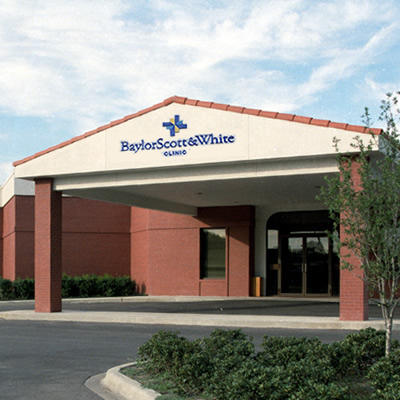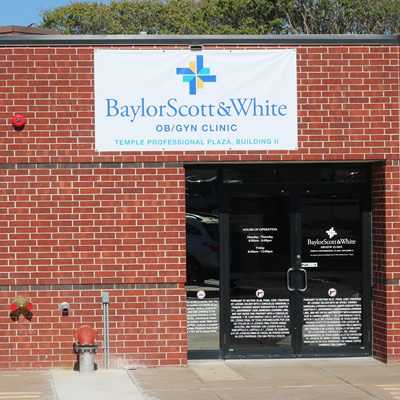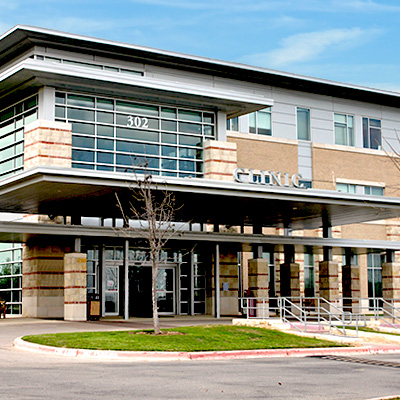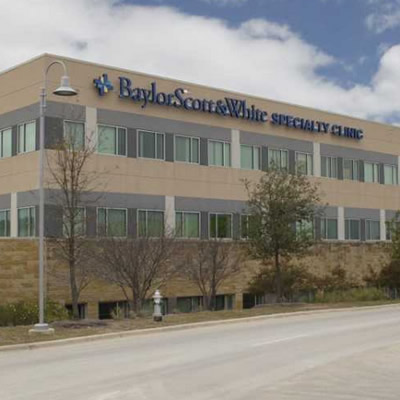What is postpartum depression?
Having a baby is a huge life change, and the postpartum period can be an overwhelming experience for many women. Postpartum depression (PPD) is more than just the baby blues. It is a mood disorder that can occur after childbirth. Postpartum depression is relatively common, affecting 1 in 8 new mothers. It often starts within the first month after delivery but can occur up to a year after childbirth.
Caring for a new baby can be challenging, and many mothers may feel overwhelmed when bringing their babies home. Some moms may have postpartum depression symptoms but feel guilty or ashamed to seek help. If you can relate, it is not your fault or caused by anything you did. You are not alone in struggling with adjusting to life with a new baby. Understanding the symptoms of postpartum depression allows you to seek help and get the support you need.
Symptoms of postpartum depression
Symptoms of postpartum depression include:
- Changes in sleeping or eating patterns
- Difficulty concentrating, focusing, remembering things or making decisions
- Eating or sleeping more or less than usual
- Feeling irritable, angry, moody or lashing out
- Feeling restless, fidgeting or unable to sit still
- Feeling withdrawn from loved ones
- Feelings of anxiety, despair, sadness or hopelessness
- Feelings of guilt, shame, pessimism or worthlessness
- Frequent crying
- Inability to experience joyful feelings
- Losing interest in things you once enjoyed
- Thoughts of harming yourself or your baby
When to see a doctor
If you are experiencing symptoms of postpartum depression that last more than two weeks, you should talk to your doctor. Also, talk to your doctor if your symptoms prevent you from going about your daily routine.
Seek urgent medical care if you have severe symptoms or thoughts of harming yourself, your baby or others. If your medical provider is not immediately available, call 911 or contact one of the following national resources:
- National Maternal Mental Health Hotline: 1.833.TLC.MAMA (1.833.852.6262). Dial 711 first if you are hearing impaired
- Postpartum Support International Helpline: Call or text “help” to 1.800.944.4773
- 988 Suicide & Crisis Lifeline: Call or text 988 (or 711, then 988 if you are hearing impaired)
How long does postpartum depression last?
Women can experience postpartum depression very differently. For some women, symptoms can last for a few months, but for a small percentage of women, postpartum depression can last for years. Seeking treatment will help you manage symptoms and improve your mental health more effectively than if you wait for symptoms to go away on their own.
What causes postpartum depression?
More research is needed to understand the connection between the rapid hormonal drop after delivery and depression. During pregnancy, estrogen and progesterone levels increase significantly but fall sharply after childbirth, returning to pre-pregnancy levels within three days.
Beyond these hormonal changes, the social and psychological adjustments of having a baby—such as physical changes, sleep deprivation, parenting worries and shifts in relationships—can also heighten the risk of postpartum depression.
Risk factors for postpartum depression
You may be at higher risk for postpartum depression if you:
- Had depression before or during pregnancy
- Have a family history of depression
- Experienced abuse or adversity as a child
- Had a difficult or traumatic birth
- Encountered issues with a previous pregnancy or birth
- Have minimal support from family, friends or partners
- Are experiencing or have experienced domestic violence
- Face relationship issues, financial problems or other significant stressors
- Are under the age of 20
- Find breastfeeding challenging
- Have a premature baby or one with special healthcare needs
- Had an unplanned pregnancy
How is postpartum depression diagnosed?
There is no specific test for diagnosing postpartum depression. Your healthcare provider will assess you during your postpartum visit, typically scheduled two or three weeks after birth, to screen for depression and provide timely support.
They may use a depression screening tool or ask questions to evaluate your symptoms and your baby's well-being. Being open and honest will help them accurately understand your feelings and determine whether they indicate postpartum depression or are part of typical adjustments. Other treatable causes of depression, such as hypothyroidism, may need to be ruled out with blood tests.
Remember, your provider is there to support your health and well-being. You're not alone in this journey, and your provider is committed to walking this path with you. There is no judgment in seeking help, only care and understanding.
Treatments for postpartum depression
Help is out there for new moms, and you do not have to live with postpartum depression. Many treatments are available, and your obstetrician-gynecologist (OBGYN) can refer you to a mental health professional for additional care.
Self-care
There are self-care strategies that can support your recovery:
- Make healthy choices: Incorporate physical activity into your routine, such as taking walks with your baby, and aim for adequate rest. Eat nutritious foods and avoid alcohol.
- Set realistic expectations: Don’t pressure yourself to achieve perfection. Adjust your expectations for household tasks and focus on what you can manage.
- Take time for yourself: Schedule time away from home, whether it’s a hobby, a movie or spending time with friends. Arrange for a partner or sitter to watch the baby if needed.
- Avoid isolation: Share your feelings with your partner, family and friends. Connect with other mothers to understand their experiences and feel less isolated.
- Ask for help: Reach out to those close to you and accept offers of help. Use the opportunity to rest or engage in activities you enjoy. Additionally, seek advice on parenting techniques to improve your baby's sleep and soothe them.
Social support
Having a supportive partner, family members and friends may help reduce your stress and lower your risk of postpartum depression. There are also support groups for women with postpartum depression, their partners and loved ones. Confiding in someone you trust or seeking advice from a loved one or support group may provide comfort, understanding and insight. Loved ones may also offer to help with caring for your baby.
Therapy
Talking with a psychiatrist, psychologist or other mental health professional can be beneficial. Therapy can help you cope with your feelings, address problems, set realistic goals and handle situations more positively. Family or relationship therapy may also be useful. Common therapies for postpartum depression include cognitive-behavioral therapy (CBT) and interpersonal psychotherapy.
Medication
Your doctor may recommend medications, such as antidepressants. The Food and Drug Administration has also approved two postpartum depression medications, one you can take orally and one given through an IV.
Let your doctor know if you are breastfeeding, as only certain antidepressants can be taken while breastfeeding.
How to prevent postpartum depression
While postpartum depression cannot be entirely prevented, recognizing warning signs and understanding risk factors can help. Here are some tips to reduce the risk of postpartum depression:
Prioritize physical and mental health
Take good care of yourself during pregnancy and after delivery.
Create a support plan
Discuss and arrange support with your partner and loved ones before the baby arrives.
Monitor symptoms
Keep track of your symptoms, especially if you have risk factors for postpartum depression.
Work with an OBGYN early
Regular prenatal visits allow for physical and mental health discussions. Your OBGYN can assess your risk for postpartum depression and monitor symptoms like those of perinatal depression.
Manage existing health conditions
Follow your OBGYN's guidance on managing chronic conditions and perinatal depression. Take your prescribed medications and seek medical advice if new or worsening symptoms arise.
Virtual postpartum care
Get access to six months of online care and support to help you and your new baby get a healthy start. Our Postpartum Care program connects you with a dedicated nurse care advocate who provides guidance and resources and can help you access lactation consultants, pelvic floor physical therapists, mental health support and more.
Find specialized care for postpartum depression
We help you get care at a location that fits your needs. We offer several locations for your care, including specialized women’s health centers in North and Central Texas.

Baylor Scott & White Medical Center - McKinney
5252 W University Dr Highway 380 at Lake Forest Drive, McKinney, TX, 75071

Baylor Scott & White Obstetrics & Gynecology - Rockwall
1005 W Ralph Hall Pkwy Ste 115, Rockwall, TX, 75032
- Monday: 8:00 am - 5:00 pm
- Tuesday: 8:00 am - 5:00 pm
- Wednesday: 8:00 am - 5:00 pm
- Thursday: 8:00 am - 5:00 pm
- Friday: 8:00 am - 5:00 pm

Baylor Scott & White Obstetrics & Gynecology - Rowlett
9500 Lakeview Pkwy Ste 100, Rowlett, TX, 75088
- Monday: 8:00 am - 5:00 pm
- Tuesday: 8:00 am - 5:00 pm
- Wednesday: 8:00 am - 5:00 pm
- Thursday: 8:00 am - 5:00 pm
- Friday: 8:00 am - 5:00 pm

Baylor Scott & White Medical Center - Lake Pointe
6800 Scenic Dr , Rowlett, TX, 75088

Baylor Scott & White Obstetrics & Gynecology - Frisco at PGA Parkway
16050 Everwell Ln Professional Pavilion I, Ste 200, Frisco, TX, 75033
- Monday: 8:00 am - 4:45 pm
- Tuesday: 8:00 am - 4:45 pm
- Wednesday: 8:00 am - 4:45 pm
- Thursday: 8:00 am - 4:45 pm
- Friday: 8:00 am - 4:30 pm

Baylor Scott & White Medical Center - Frisco at PGA Parkway
7600 Better Way , Frisco, TX, 75033

Baylor Scott & White Obstetrics & Gynecology - Frisco
4461 Coit Rd Ste 205, Frisco, TX, 75035
- Monday: 8:00 am - 4:45 pm
- Tuesday: 8:00 am - 4:45 pm
- Wednesday: 8:00 am - 4:45 pm
- Thursday: 8:00 am - 4:45 pm
- Friday: 8:00 am - 4:30 pm

Baylor Scott & White Medical Center - Centennial
12505 Lebanon Rd , Frisco, TX, 75035

Baylor Scott & White Surgicare - Garland
530 Clara Barton Blvd Ste 100, Garland, TX, 75042
- Monday: 6:00 am - 5:00 pm
- Tuesday: 6:00 am - 5:00 pm
- Wednesday: 6:00 am - 5:00 pm
- Thursday: 6:00 am - 5:00 pm
- Friday: 6:00 am - 5:00 pm

Baylor Scott & White Medical Center - Frisco
5601 Warren Pkwy , Frisco, TX, 75034

Baylor Scott & White Medical Center - Plano
4700 Alliance Blvd , Plano, TX, 75093

Baylor Scott & White Park Lane OB/GYN Associates
9101 N Central Expy Ste 250, Dallas, TX, 75231
- Monday: 8:00 am - 4:30 pm
- Tuesday: 8:00 am - 4:30 pm
- Wednesday: 8:00 am - 4:30 pm
- Thursday: 8:00 am - 4:30 pm
- Friday: 8:00 am - 4:30 pm

Baylor Scott & White Surgicare - Dallas
4020 Junius St , Dallas, TX, 75246
- Monday: 6:00 am - 5:00 pm
- Tuesday: 6:00 am - 5:00 pm
- Wednesday: 6:00 am - 5:00 pm
- Thursday: 6:00 am - 5:00 pm
- Friday: 6:00 am - 5:00 pm

Baylor Scott & White Women's Health Group
3600 Gaston Ave Wadley Tower, Ste 1158, Dallas, TX, 75246
- Monday: 9:00 am - 5:00 pm
- Tuesday: 9:00 am - 5:00 pm
- Wednesday: 9:00 am - 5:00 pm
- Thursday: 9:00 am - 5:00 pm
- Friday: 9:00 am - 4:30 pm

Baylor University Medical Center, part of Baylor Scott & White Health
3500 Gaston Ave , Dallas, TX, 75246

Baylor Scott & White Medical Center - Irving
1901 N MacArthur Blvd , Irving, TX, 75061

Baylor Scott & White Medical Center - Grapevine
1650 W College St , Grapevine, TX, 76051

Baylor Scott & White Obstetrics & Gynecology - Grapevine
1631 Lancaster Dr Ste 370, Grapevine, TX, 76051
- Monday: 8:00 am - 5:00 pm
- Tuesday: 8:00 am - 5:00 pm
- Wednesday: 8:00 am - 5:00 pm
- Thursday: 8:00 am - 5:00 pm
- Friday: 8:00 am - 5:00 pm

Baylor Scott & White Women’s Health Specialists - Waxahachie
2460 N Interstate 35E Ste 165, Waxahachie, TX, 75165
- Monday: 8:00 am - 5:00 pm
- Tuesday: 8:00 am - 5:00 pm
- Wednesday: 8:00 am - 5:00 pm
- Thursday: 8:00 am - 5:00 pm
- Friday: 8:00 am - 5:00 pm

Baylor Scott & White Obstetrics & Gynecology - Waxahachie
2460 N Interstate 35E Ste 225, Waxahachie, TX, 75165
- Monday: 9:00 am - 4:30 pm
- Tuesday: 9:00 am - 4:30 pm
- Wednesday: 9:00 am - 4:30 pm
- Thursday: 9:00 am - 4:30 pm
- Friday: 9:00 am - 4:30 pm

Baylor Scott & White Medical Center - Waxahachie
2400 N Interstate 35E , Waxahachie, TX, 75165

Baylor Scott & White All Saints Medical Center - Fort Worth
1400 8th Ave , Fort Worth, TX, 76104

Baylor Scott & White Medical Center - Hillcrest
100 Hillcrest Medical Blvd , Waco, TX, 76712

Baylor Scott & White OB/GYN Clinic - Waco
120 Hillcrest Medical Blvd Office Building 2, Ste 201-2, Waco, TX, 76712
- Monday: 8:00 am - 5:00 pm
- Tuesday: 8:00 am - 5:00 pm
- Wednesday: 8:00 am - 5:00 pm
- Thursday: 8:00 am - 5:00 pm
- Friday: 8:00 am - 5:00 pm

Baylor Scott & White Clinic - College Station Rock Prairie
800 Scott and White Dr , College Station, TX, 77845
- Monday: 7:30 am - 5:00 pm
- Tuesday: 7:30 am - 5:00 pm
- Wednesday: 7:30 am - 5:00 pm
- Thursday: 7:30 am - 5:00 pm
- Friday: 7:30 am - 5:00 pm

Baylor Scott & White Medical Center - College Station
700 Scott and White Dr , College Station, TX, 77845

Baylor Scott & White Clinic - Santa Fe
1402 W Ave H , Temple, TX, 76504
- Monday: 8:00 am - 5:00 pm
- Tuesday: 8:00 am - 5:00 pm
- Wednesday: 8:00 am - 5:00 pm
- Thursday: 8:00 am - 5:00 pm
- Friday: 8:00 am - 5:00 pm
- Monday: 7:00 am - 4:30 pm
- Tuesday: 7:00 am - 4:30 pm
- Wednesday: 7:00 am - 4:30 pm
- Thursday: 7:00 am - 4:30 pm
- Friday: 7:00 am - 4:30 pm

Baylor Scott & White Medical Center - Temple
2401 S 31st St , Temple, TX, 76508

Baylor Scott & White Clinic - Temple
2401 S 31st St , Temple, TX, 76508
- Monday: 8:00 am - 5:00 pm
- Tuesday: 8:00 am - 5:00 pm
- Wednesday: 8:00 am - 5:00 pm
- Thursday: 8:00 am - 5:00 pm
- Friday: 8:00 am - 5:00 pm

Baylor Scott & White Clinic - Temple Professional Plaza II
1713 SW H K Dodgen Loop Bldg II, Ste 100, Temple, TX, 76502
- Monday: 8:00 am - 6:00 pm
- Tuesday: 8:00 am - 6:00 pm
- Wednesday: 8:00 am - 6:00 pm
- Thursday: 8:00 am - 6:00 pm
- Friday: 8:00 am - 12:00 pm

Baylor Scott & White Medical Center - Brenham
700 Medical Pkwy , Brenham, TX, 77833

Baylor Scott & White Clinic - Brenham Hwy 290
604 US 290 , Brenham, TX, 77833
- Monday: 7:00 am - 5:00 pm
- Tuesday: 7:00 am - 5:00 pm
- Wednesday: 7:00 am - 5:00 pm
- Thursday: 7:00 am - 7:00 pm
- Friday: 7:00 am - 5:00 pm
- Saturday: 8:00 am - 12:00 pm

Baylor Scott & White Specialty Clinic - Salado
213 Millcreek Dr Ste 190, Salado, TX, 76571
- Monday: 8:00 am - 5:00 pm
- Tuesday: 8:00 am - 5:00 pm
- Wednesday: 8:00 am - 5:00 pm
- Thursday: 8:00 am - 5:00 pm
- Friday: 8:00 am - 5:00 pm

Baylor Scott & White Specialty Clinic - Harker Heights
907 Mountain Lion Cir , Harker Heights, TX, 76548
- Monday: 8:00 am - 5:00 pm
- Tuesday: 8:00 am - 5:00 pm
- Wednesday: 8:00 am - 5:00 pm
- Thursday: 8:00 am - 5:00 pm
- Friday: 8:00 am - 5:00 pm

Baylor Scott & White Specialty Clinic - Killeen Hemingway
2405 S Clear Creek Rd , Killeen, TX, 76549
- Monday: 8:00 am - 5:00 pm
- Tuesday: 8:00 am - 5:00 pm
- Wednesday: 8:00 am - 5:00 pm
- Thursday: 8:00 am - 5:00 pm
- Friday: 8:00 am - 5:00 pm

Baylor Scott & White Clinic - Round Rock 302 University
302 University Blvd , Round Rock, TX, 78665
- Monday: 8:00 am - 5:00 pm
- Tuesday: 8:00 am - 5:00 pm
- Wednesday: 8:00 am - 5:00 pm
- Thursday: 8:00 am - 5:00 pm
- Friday: 8:00 am - 5:00 pm

Baylor Scott & White Medical Center - Round Rock
300 University Blvd , Round Rock, TX, 78665

Baylor Scott & White Clinic - Pflugerville Medical Center (Building 1)
2600 E Pflugerville Pkwy Bldg 1, Ste 200, Pflugerville, TX, 78660
- Monday: 8:00 am - 5:00 pm
- Tuesday: 8:00 am - 5:00 pm
- Wednesday: 8:00 am - 5:00 pm
- Thursday: 8:00 am - 5:00 pm
- Friday: 8:00 am - 5:00 pm
- Monday: 7:30 am - 4:00 pm
- Tuesday: 7:30 am - 4:00 pm
- Wednesday: 7:30 am - 4:00 pm
- Thursday: 7:30 am - 4:00 pm
- Friday: 7:30 am - 4:00 pm

Baylor Scott & White Clinic - Pflugerville Medical Center Building 2
2600 E Pflugerville Pkwy Building 2, Pflugerville, TX, 78660
- Monday: 8:00 am - 5:00 pm
- Tuesday: 8:00 am - 5:00 pm
- Wednesday: 8:00 am - 5:00 pm
- Thursday: 8:00 am - 5:00 pm
- Friday: 8:00 am - 5:00 pm
- Monday: 8:00 am - 4:00 pm
- Tuesday: 8:00 am - 4:00 pm
- Wednesday: 8:00 am - 4:00 pm
- Thursday: 8:00 am - 4:00 pm
- Friday: 8:00 am - 4:00 pm

Baylor Scott & White Medical Center - Pflugerville (Building 1)
2600 E Pflugerville Pkwy Bldg 1, Ste 100, Pflugerville, TX, 78660

Baylor Scott & White Clinic - Cedar Park
910 E Whitestone Blvd , Cedar Park, TX, 78613
- Monday: 8:00 am - 5:00 pm
- Tuesday: 8:00 am - 5:00 pm
- Wednesday: 8:00 am - 5:00 pm
- Thursday: 8:00 am - 5:00 pm
- Friday: 8:00 am - 5:00 pm
- Monday: 7:00 am - 5:00 pm
- Tuesday: 7:00 am - 5:00 pm
- Wednesday: 7:00 am - 5:00 pm
- Thursday: 7:00 am - 5:00 pm
- Friday: 7:00 am - 5:00 pm
- Saturday: 9:00 am - 2:00 pm

Baylor Scott & White Clinic - Austin North Burnet
2608 Brockton Dr , Austin, TX, 78758
- Monday: 8:00 am - 5:00 pm
- Tuesday: 8:00 am - 5:00 pm
- Wednesday: 8:00 am - 5:00 pm
- Thursday: 8:00 am - 5:00 pm
- Friday: 8:00 am - 5:00 pm

Baylor Scott & White Medical Center - Austin
5245 W US Hwy 290 Service Rd , Austin, TX, 78735

Baylor Scott & White Medical Center - Lakeway
100 Medical Pkwy , Lakeway, TX, 78738

Baylor Scott & White Specialty Clinic - Lakeway
200 Medical Pkwy , Lakeway, TX, 78738
- Monday: 8:00 am - 5:00 pm
- Tuesday: 8:00 am - 5:00 pm
- Wednesday: 8:00 am - 5:00 pm
- Thursday: 8:00 am - 5:00 pm
- Friday: 8:00 am - 5:00 pm

Baylor Scott & White Medical Center - Buda
5330 Overpass Rd , Buda, TX, 78610

Baylor Scott & White Specialty Clinic - Marble Falls
800 W State Hwy 71 , Marble Falls, TX, 78654
- Monday: 8:00 am - 5:30 pm
- Tuesday: 8:00 am - 5:30 pm
- Wednesday: 8:00 am - 5:30 pm
- Thursday: 8:00 am - 5:30 pm
- Friday: 8:00 am - 5:30 pm

